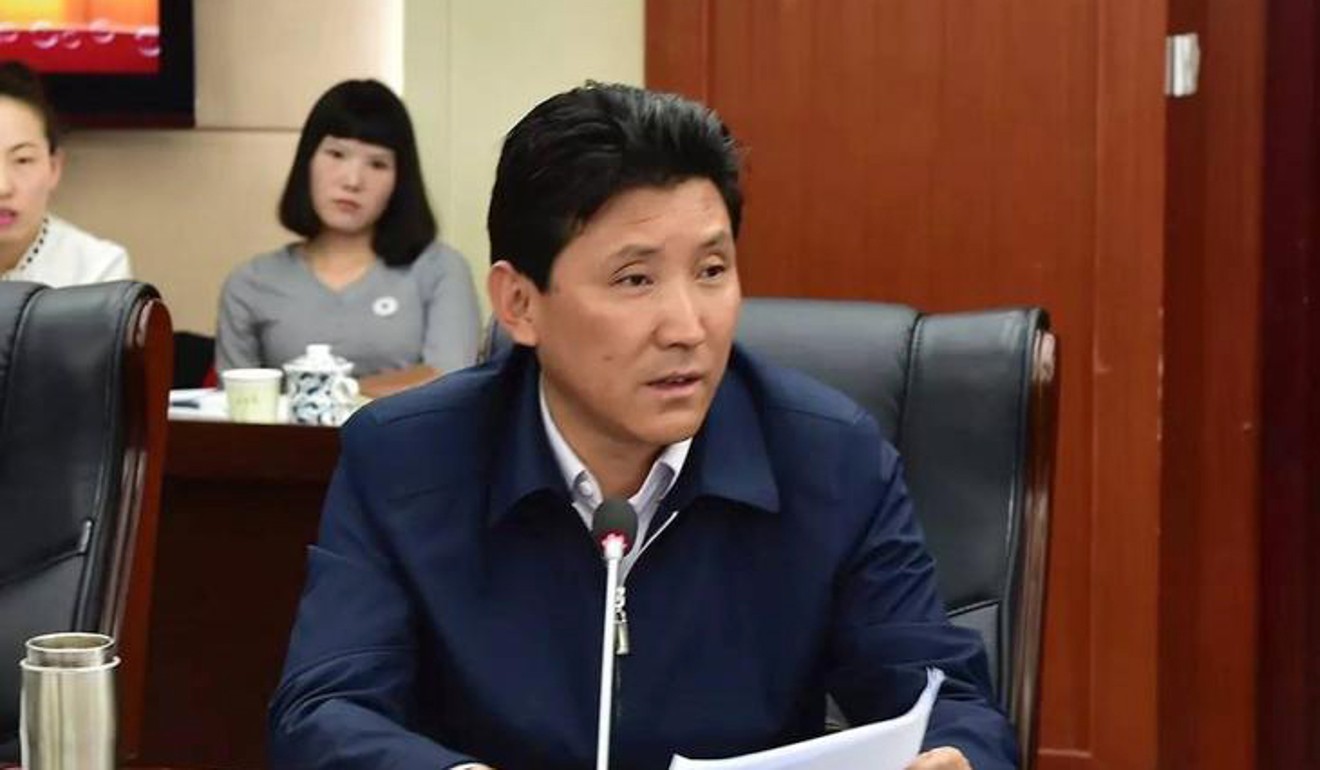
Tibetan religious activity slashed, Lhasa mayor confirms
- Rare confirmation of extent of Beijing’s religious control ahead of sensitive 60th anniversary of Tibetan uprising

Just days before the 60th anniversary of Tibet’s deadly uprising against Beijing’s rule, the mayor of its capital Lhasa has made a rare public statement about the extent of the government’s restrictions on religious activities in the spiritual centre of Tibetan Buddhism.
Speaking at China’s annual legislative meetings in Beijing, Go Khok, mayor and deputy Communist Party chief of Lhasa, said on Wednesday that the number of days spent observing religious events, and the number of people attending them, had both been reduced to less than 10 per cent.
“In 2018, Lhasa … took a clear-cut stand in eliminating the negative influence the Dalai Lama exerted via religion and took great effort in ridding the passive religious influence,” he told a room of Tibetan delegates and journalists in the Great Hall of the People.
“Based on the premise that believers’ religious needs were met, the number of days major religious activities were held and the number of people attending them both reduced to below 10 per cent,” he said, without specifying if the figure referred to a proportion of the entire year and the entire Lhasa population.

Repeated calls to the Tibetan delegation’s press officer for clarification went unanswered. According to the 2010 census, 76.7 per cent of Lhasa residents are Tibetans.
Sunday marks the anniversary of the beginning of the failed 1959 uprising, which began in Lhasa, led to the exile of the Dalai Lama, Tibet’s spiritual leader, and an increasingly stringent grip by Beijing on the Himalayan region’s predominantly Buddhist faith.
Images of the Dalai Lama – regarded by Beijing as a dangerous separatist – are banned in public and in homes in Tibet, and religious practices of students and state employees are highly controlled.
But it is rare for authorities to so blatantly disclose the actual figures of such restrictions, according to Tsering Woeser, a Tibetan poet and writer living in Beijing.
“These restrictions have been in place for years, and are very specific,” she said.
Retired party cadres, civil servants and other public employees are all banned from attending religious activities, with offenders risking reduced pensions, salaries or even dismissal. Students, from primary schools to universities, are also banned from the activities, Woeser said.
“As a result, the number of believers taking part in religious activities nowadays is far fewer than before … but this is only the appearance. The belief Tibetans – including the young people – hold towards Buddhism and the Dalai Lama are not only prevalent, but unflinching.”
In his speech, Go Khok said maintaining stability would be a key task for the city government this year, because of the anniversary.
He said the city had been doubling down on its so-called “grid management system” – a neighbourhood surveillance and control measure introduced by Tibet’s previous Communist Party boss Chen Quanguo.
Since leaving Tibet and becoming the party boss of neighbouring Xinjiang in the summer of 2016, Chen has transferred and escalated many of the security measures he tested in Tibet to his new posting, placing the restive region under a sweeping security lockdown and holding an estimated 1 million Muslim minorities in internment camps.
Go Khok also said the government had “appointed specially assigned people to follow, serve and manage key Muslim targets who headed overseas”, without elaborating.
Additional reporting by Sarah Zheng